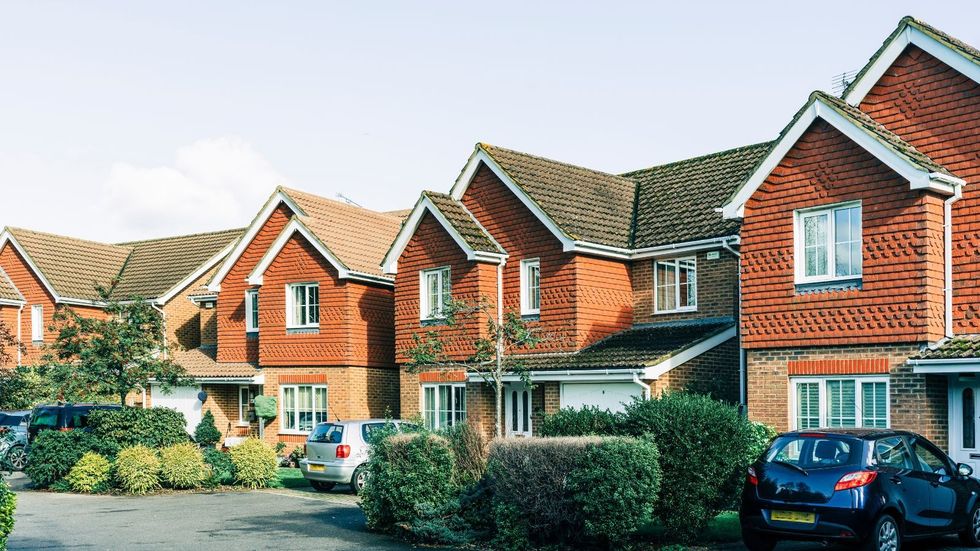Hundreds of thousands of Britons could be forced to pay up to 39 per cent in tax on the profits of their investments, as Chancellor Rachel Reeves mulls ways to fill the “£22billion black hole”.
Treasury officials are testing a range of 33 per cent to 39 per cent capital gains tax rates in modelling being reviewed by the Chancellor, The Guardian reports.
Around 350,000 people pay capital gains tax, which is levied upon the sale of assets, including second homes and shares. The gain made on the asset is taxed, currently at a significantly lower rate than wages.
Higher or additional rate taxpayers currently pay 24 per cent on gains from residential property and 20 per cent on gains from other chargeable assets. The rate basic rate taxpayers pay depends on the size of their gain, the taxable income, and whether the gain is from residential property or other assets.
Rachael Griffin, tax and financial planning expert at Quilter, said it looks “quite likely” that changes to capital gains tax could be on the cards in Labour’s first Budget.
She said reports of capital gains tax rates to between 33 per cent and 39 per cent “are not all that surprising given an alignment to income tax rates had previously been tabled,” but warned questions remain about whether “such a drastic hike” would help in filling the Chancellor’s “black hole” in public spending.
Capital gains tax allowances have been slashed in recent years – the annual tax-free allowance for capital gains was cut from £12,300 to £6,000 in 2023, and then to £3,000 from April 2024.
“This change heavily impacted those looking to sell shares, other assets or second homes, and the rumoured increase in rates could cause further pain,” Griffin said.
The financial planning expert told GBN Membership that, while no changes have been confirmed yet, it is “always wise to stay on top of your financial plans to ensure you are making the most tax efficient decisions to help mitigate tax bills including CGT”.
How to mitigate capital gains tax bills
There are various ways people could potentially reduce a captial gains tax liability.
“This could include transferring assets to a spouse, maximising contributions to ISAs and, for some investors, looking at investments which allow you to save in a tax efficient way such as single premium investment bonds,” Griffin explained.
Utilising the annual allowance
The annual ISA allowance, which stands at £20,000 per tax year, could also help. “It represents a highly tax efficient way for people to grow their savings and, should CGT changes materialise at the Budget, it will be all the more important that as much of your money is held in a tax-free environment as possible,” Griffin added.
Spread gains across tax years
Myron Jobson, senior personal finance analyst at interactive investor, suggested spreading gains across two or more tax years, pointing out, like the ISA allowance, capital gains tax and dividend allowances work on a use or it lose it basis.
“An option for those facing a tax bill is to delay capital gains by spreading them across two or more tax years,” he said. “Theoretically, they could sell half their position on 5 April and sell the other half on 6 April – the start of the new tax year.”
Keeping an eye on overall finances to minimise a tax bills is also important, he warned, particularly given Rishi Sunak and Jeremy Hunt froze tax thresholds until 2028, as basic rate taxpayers could find a capital gain pushes them into paying higher rate tax bands for the first time.
He said: “One option is to consider selling shares gradually over a number of years to keep your gain below the tax threshold for higher rate tax. Capital gains tax can be complicated so it’s worth getting financial advice if you’re not sure.”
MORE FROM GBN MEMBERSHIP:
- ‘Can I invest in a SIPP? Is there any advantage compared to a stocks and shares ISA?’
- A huge property tax cliff edge is looming – and it could cost you thousands
- Three big state pension issues which experts think Reeves really needs to address
Use losses to reduce gains
Capital losses can be used to offset capital gains, which could reduce the amount subject to CGT.
“If you have investments that have incurred losses, you can use these losses to offset gains realised on other investments, thereby reducing your overall tax liability,” Jobson explained.
Transfer assets to a civil partner/spouse
Civil partners and spouses can transfer assets to one another, usually tax-free, which could mitigate capital gains tax and dividend tax.
“This is because we each have our own allowance, meaning that married couples could potentially benefit from double the CGT and dividend tax allowances,” Jobson said. “The benefit is greater if the recipient who sells the assets is subject to a lower tax rate.”

Around 350,000 people pay capital gains tax, which is levied upon the sale of assets, including second homes and shares
GETTY
Investors should be aware changes to capital gains tax have not yet been announced, and it’s not known whether or not the tax rate hikes will actually come into effect.
Griffin said: “At this stage, nothing has been confirmed so unless realising gains from investments or selling a second home or business had already been in your plans, making decisions based on what might happen is not sensible.
“Nonetheless, given the already tight squeeze on the various tax allowances and thresholds, as well as the rumours which are rapidly building ahead of the budget, it would be wise to ensure you seek professional financial advice where possible to help you make the most tax efficient decisions for your circumstances.”
An HM Treasury spokesperson said: “This reporting is not based on government modelling – we do not recognise it. This is pure speculation.”